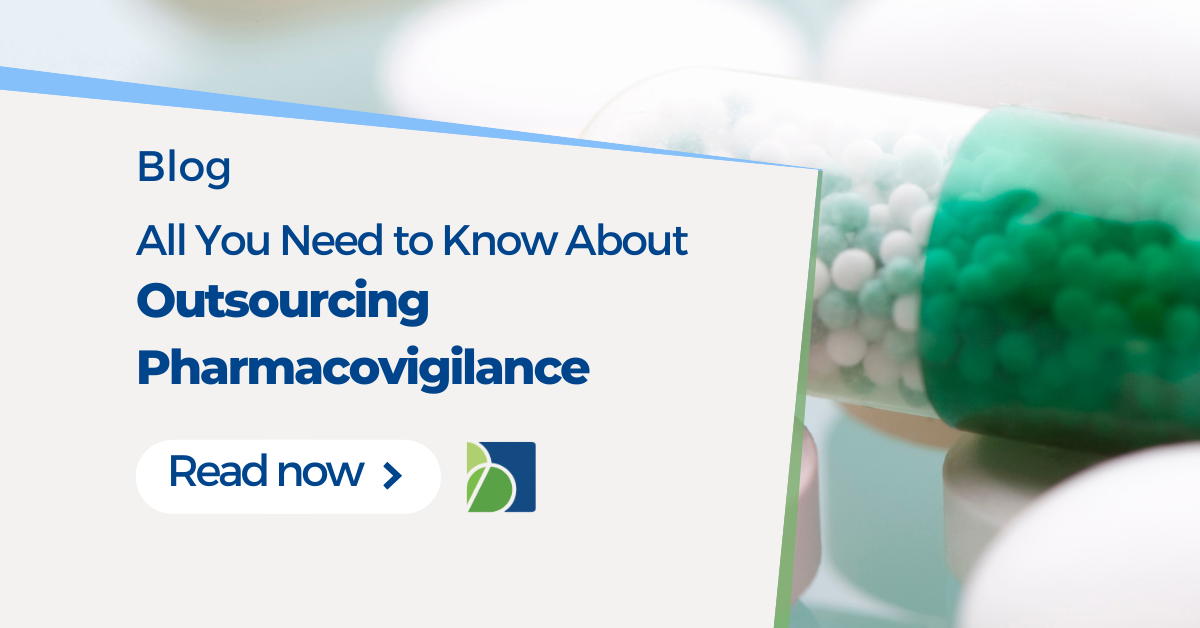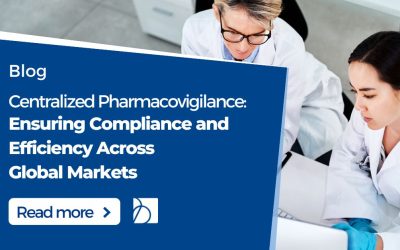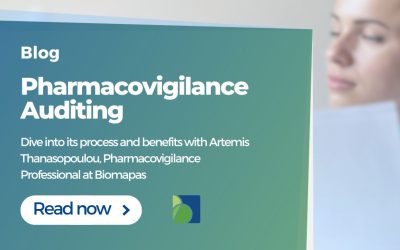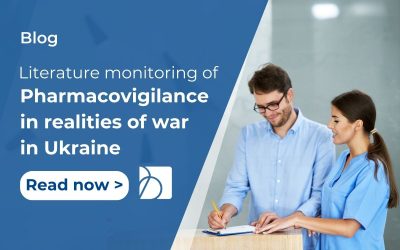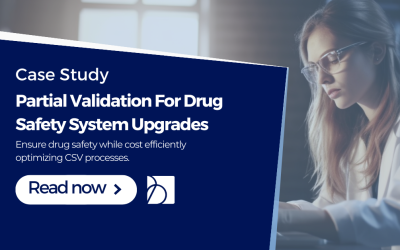Imagine a pharmaceutical company navigating the intricate labyrinth of drug development and patient safety. Amid these complexities, an intriguing solution has been emerging: pharmacovigilance outsourcing. This practice involves entrusting a part or the entirety of pharmacovigilance functions to external providers, often specialized organizations.
Benefits of Pharmacovigilance Outsourcing
What’s the allure of this approach? Well, cost-effectiveness tops the list. Companies can sidestep the substantial expense of setting up and maintaining an in-house pharmacovigilance department by partnering with external experts. Plus, it allows for optimizing resource allocation according to the project’s demand.
The external providers aren’t just cost-effective; they’re specialists of their craft. Companies tapping into pharmacovigilance outsourcing get access to experienced professionals with in-depth knowledge of safety regulations, adverse event reporting, signal detection, and risk management. This is invaluable for enhancing patient safety and compliance with regulatory requirements.
Regarding regulatory compliance, it’s no secret that pharmaceutical companies must navigate a complex regulatory landscape. By entrusting pharmacovigilance activities to a seasoned service provider, companies can ensure they’re always aligned with industry best practices and up-to-date regulations.
Pharmacovigilance outsourcing also lets companies turn their undivided attention to their core competencies – be it research and development, clinical trials, or marketing. This sharper focus can lead to improved efficiency and productivity.
Pharmacovigilance Outsourcing Models
Outsourcing in pharmacovigilance isn’t one-size-fits-all. Companies can go for a full outsourcing model, a Functional Service Provider (FSP) model, or a hybrid of both. Each has advantages and can be selected based on the company’s needs and structure.
Full Outsourcing
A pharmaceutical company transfers all pharmacovigilance activities to an external service provider in the full outsourcing model. This includes case processing, medical review, signal detection, aggregate reporting, and regulatory compliance. Full outsourcing offers a comprehensive solution, providing companies with end-to-end pharmacovigilance support.
Functional Service Provider (FSP) Model
The FSP model involves outsourcing specific pharmacovigilance functions to a service provider. For example, a company may outsource only case processing or medical review activities while retaining other functions in-house. The FSP model offers flexibility and allows companies to tailor their outsourcing approach based on their needs.
Hybrid Model
The hybrid model combines elements of both full outsourcing and the FSP model. A pharmaceutical company collaborates with multiple service providers in this model to handle different pharmacovigilance functions. It gives companies the advantage of outsourcing while retaining control over critical processes.
Factors to Consider When Choosing a Pharmacovigilance Outsourcing Partner
Now, like any significant strategic decision, choosing an outsourcing partner should be done with due diligence. Factors such as experience, track record, quality assurance, data security, geographic location, and scalability play a critical role in determining the partnership’s success.
Selecting the right outsourcing partner is crucial for the success of pharmacovigilance outsourcing.
Experience and track record
Evaluate the potential outsourcing partners based on their experience in pharmacovigilance and their track record of successfully handling similar projects. Look for references and client testimonials to gain insights into their expertise and performance.
Quality & Compliance
Ensure the outsourcing partner follows robust quality assurance processes and complies with regulatory guidelines. Look for certifications such as ISO 9001 and ISO 27001, demonstrating their commitment to quality and data security.
Data security and confidentiality
Pharmacovigilance involves handling sensitive patient data. It is crucial to choose an outsourcing partner with stringent data security measures to protect patient privacy and comply with data protection regulations.
Geographic location and cultural fit
Consider the geographic location of the outsourcing partner. Time zone differences and cultural compatibility can impact communication and collaboration. Choose a partner with a location and cultural context that aligns well with your company’s operations.
Scalability and flexibility
Assess the outsourcing partner’s ability to scale operations and adapt to changing requirements. The partner should have the resources and capabilities to accommodate future growth and evolving pharmacovigilance needs.
Outlook on Pharmacovigilance Outsourcing
As we look ahead, it’s clear that the pharmacovigilance outsourcing landscape isn’t static. It’s continually being reshaped by emerging trends, including the use of advanced technologies, increased focus on real-world data and evidence, integration of AI and automation, collaborative partnerships, and patient-centric approaches.
Utilization of advanced technologies
Pharmacovigilance outsourcing increasingly leverages advanced technologies such as artificial intelligence (AI), machine learning, and natural language processing. These technologies automate data analysis, signal detection, and adverse event processing, leading to more efficient and accurate pharmacovigilance activities.
Increased focus on real-world data and evidence
Real-world data (RWD) and real-world evidence (RWE) are crucial in pharmacovigilance. Outsourcing partners are incorporating RWD/RWE into their processes to gain deeper insights into drug safety profiles and monitor post-marketing adverse events more effectively.
Integration of artificial intelligence and automation
Artificial intelligence and automation are transforming pharmacovigilance outsourcing. AI-powered algorithms can analyze vast amounts of data, detect safety signals, and identify potential adverse events. Automation streamlines processes reduces manual effort, and improves efficiency.
Collaborative partnerships and consortiums
Pharmacovigilance outsourcing is witnessing the emergence of collaborative partnerships and consortiums. Multiple stakeholders, including pharmaceutical companies, service providers, regulatory authorities, and patient advocacy groups, share data, expertise, and resources to enhance drug safety.
Growing importance of patient-centricity
Patient-centricity is gaining prominence in pharmacovigilance. Outsourcing partners focus on patient engagement, collecting patient-reported outcomes, and integrating patient perspectives into safety assessments. This patient-centric approach improves the understanding of drug safety profiles and enhances patient welfare.
Challenges in Pharmacovigilance Outsourcing
Nevertheless, as exciting as pharmacovigilance outsourcing can be, it’s not without challenges. Companies must navigate potential language and communication barriers, understand regulatory variations, manage a large volume of data, ensure consistent quality and compliance, and manage the transition risks when outsourcing pharmacovigilance activities.
Communication and language barriers
Outsourcing pharmacovigilance activities may involve working with teams located in different countries or regions with diverse languages and cultural backgrounds. Effective communication and overcoming language barriers are essential for seamless collaboration and understanding.
Regulatory complexities and variations
Different countries have distinct regulatory requirements and guidelines for pharmacovigilance. Ensuring compliance with these variations can be challenging when outsourcing to multiple regions. Working with outsourcing partners who understand global regulations and can navigate the complexities is crucial.
Data management and integration issues
Pharmacovigilance generates a vast amount of data from diverse sources. Integrating and managing this data effectively can be complex, particularly when working with multiple data systems and formats. Implementing robust data management processes and ensuring seamless integration is critical for accurate and efficient pharmacovigilance activities.
Ensuring consistent quality and compliance
Maintaining consistent quality and compliance standards across outsourced pharmacovigilance activities can be challenging. It requires robust governance mechanisms, clear expectations, and effective monitoring to consistently ensure that the outsourcing partner adheres to the defined quality and compliance standards.
Change management and transition risks
Transferring pharmacovigilance activities to an outsourcing partner involves significant change management. Ensuring a smooth transition and managing potential risks such as knowledge transfer, process alignment, and staff integration require careful planning, communication, and stakeholder engagement.
Best Practices in Outsourcing Pharmacovigilance
The key to navigating these hurdles lies in adopting best practices. This involves defining the scope of work clearly, promoting effective communication, establishing strong governance, fostering continuous process improvement, and implementing robust risk management strategies.
Clearly defined scope of work
Establish a well-defined scope of work that outlines the responsibilities and expectations of the pharmaceutical company and the outsourcing partner. This includes defining the pharmacovigilance functions to be outsourced, deliverables, timelines, and key performance indicators.
Effective communication and collaboration
Maintain open lines of communication with the outsourcing partner through regular meetings, progress updates, and feedback sessions. Foster a collaborative environment encouraging knowledge sharing, problem-solving, and continuous improvement.
Robust governance and oversight
Implement a governance framework that ensures effective oversight of pharmacovigilance activities. Define roles and responsibilities, establish key performance indicators, and conduct periodic audits to monitor compliance, quality, and performance.
Continuous process improvement
Encourage a culture of continuous improvement by regularly reviewing and optimizing pharmacovigilance processes. Identify areas for efficiency gains, implement automation where appropriate, and leverage emerging technologies to enhance the effectiveness of pharmacovigilance activities.
Risk management and mitigation strategies
Identify potential risks and develop mitigation strategies to address them proactively. Regularly assess risks associated with outsourcing, such as data security breaches, regulatory non-compliance, or service disruptions, and implement appropriate measures to minimize their impact.
Wrapping up
In conclusion, pharmacovigilance outsourcing is a strategic approach that can substantially benefit pharmaceutical companies, offering an avenue to improve efficiency, compliance and focus on core functions. With the right outsourcing partner and a commitment to best practices, companies can successfully navigate the pharmacovigilance landscape while focusing on their primary business objectives.
Pharmacovigilance outsourcing refers to entrusting some or all of the functions to external service providers. It allows pharmaceutical companies to leverage specialized organizations’ expertise, infrastructure, and resources while focusing on their core competencies.
In conclusion, pharmacovigilance outsourcing is a strategic move that brings substantial benefits to pharmaceutical companies, providing a means to enhance efficiency, ensure compliance, and maintain focus on core functions. By selecting the right outsourcing partner and adopting best practices, companies can successfully navigate the complexities of pharmacovigilance while concentrating on their primary business objectives.


